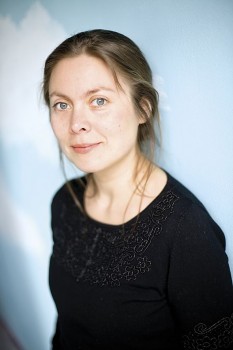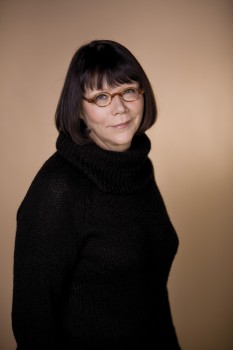Search results for "tommi musturi"
Truth or hype: good books or bad reviews?
8 November 2013 | Letter from the Editors

‘The Bibliophile’s Desk’: L. Block (1848–1901). Wikipedia
More and more new Finnish fiction is seeing the light of day. Does quantity equal quality?
Fewer and fewer critical evaluations of those fiction books are published in the traditional print media. Is criticism needed any more?
At the Helsinki Book Fair in late October the latest issue of the weekly magazine Suomen Kuvalehti was removed from the stand of its publisher, Otavamedia, by the chief executive officer of Otava Publishing Company Ltd. Both belong to the same Otava Group.
The cover featured a drawing of a book in the form of a toilet roll, referring to an article entitled ‘The ailing novel’, by Riitta Kylänpää, in which new Finnish fiction and literary life were discussed, with a critical tone at places. CEO Pasi Vainio said he made the decision out of respect for the work of Finnish authors.
His action was consequently assessed by the author Elina Hirvonen who, in her column in the Helsingin Sanomat newspaper, criticised the decision. ‘The attempt to conceal the article was incomprehensible. Authors are not children. The Finnish novel is not doing so badly that it collapses if somebody criticises it. Even a rambling reflection is better for literature than the same old articles about the same old writers’ personal lives.’ More…
Tutti frutti
20 November 2009 | In the news
 The chair of the jury for the Finlandia Prize for Non-Fiction 2009, Professor Pekka Puska, compared choosing a winner to the dilemma of choosing between oranges and bananas. The jury found that among the entries were at least 20 or 30 books that could have gone on the final shortlist of six titles. More…
The chair of the jury for the Finlandia Prize for Non-Fiction 2009, Professor Pekka Puska, compared choosing a winner to the dilemma of choosing between oranges and bananas. The jury found that among the entries were at least 20 or 30 books that could have gone on the final shortlist of six titles. More…
Finlandia Prize for Non-Fiction 2011
24 November 2011 | In the news
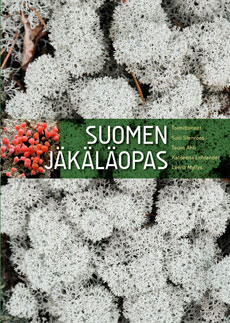 ‘Scientific, aesthetic, timely: the work is all of these. A work of non-fiction can be both precisely factual and emotional, full of both information and soul. A good non-fiction book will surprise. I did not expect to be enthused by lichens, their variety and colours,’ declared Professor Alf Reen in announcing the winner of this year’s Finlandia Prize for Non-Fiction on 17 November.
‘Scientific, aesthetic, timely: the work is all of these. A work of non-fiction can be both precisely factual and emotional, full of both information and soul. A good non-fiction book will surprise. I did not expect to be enthused by lichens, their variety and colours,’ declared Professor Alf Reen in announcing the winner of this year’s Finlandia Prize for Non-Fiction on 17 November.
The winning work is Suomen jäkäläopas (‘Guidebook of lichens in Finland’), edited by Soili Stenroos & Teuvo Ahti & Katileena Lohtander & Leena Myllys (The Botanical Museum / The Finnish Museum of Natural History). The prize is worth €30,000.
The other works on the shortlist of six were the following: Kustaa III ja suuri merisota. Taistelut Suomenlahdella 1788–1790 [(‘Gustav III and the great sea war. Battles in the Gulf of Finland 1788–1790’, John Nurminen Foundation), written by Raoul Johnsson, with an editorial board consisting of Maria Grönroos & Ilkka Karttunen &Tommi Jokivaara & Juhani Kaskeala & Erik Båsk; Unihiekkaa etsimässä. Ratkaisuja vauvan ja taaperon unipulmiin (‘In search of the sandman. Solutions to babies’ and toddlers’ sleep problems’ ) by Anna Keski-Rahkonen & Minna Nalbantoglu (Duodecim); Operaatio Hokki. Päämajan vaiettu kaukopartio (‘Operation Hokki. Headquarters’ silenced long-distance patrol’), an account of a long-distance patrol strike in eastern Karelia during the Continuation War in 1944, by Mikko Porvali (Atena); Trotski (‘Trotsky’, Gummerus; biography) by Christer Pursiainen; and Lintukuvauksen käsikirja (‘Handbook of bird photography’) by Markus Varesvuo & Jari Peltomäki & Bence Máté (Docendo).
Encounters with a language
12 December 2014 | Articles, Non-fiction
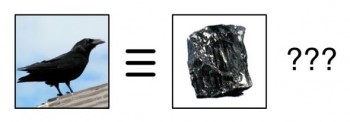
Mistranslation: illustration by Sminthopsis84/Wikimedia
Mother tongue: not Finnish. How do people become interested enough in the Finnish language in order to become translators? In the olden days some might have been greatly inspired by the music Sibelius (as were the eminent British translators of Finnish, David Barrett or Herbert Lomas, for example, back in the 1950s and 1960s). We asked contemporary translators to reminisce on how they in turn have become infatuated enough with Finnish to start studying and translating this small, somewhat eccentric northern language. Three translators into English, one into French, German and Latvian tell us why
How to build a Finlandia Prize-winning novel
4 December 2009 | In the news
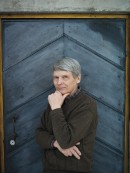
Antti Hyry
The Finlandia Prize for Fiction 2009, worth €30,000, was awarded to Antti Hyry (born 1931) on 2nd December; his novel about building a stove, Uuni (‘The stove’, Otava), was chosen by the art historian and former director of the Finnish National Gallery, Tuula Arkio, from a shortlist of six. More…
Still selling best
8 May 2014 | In the news
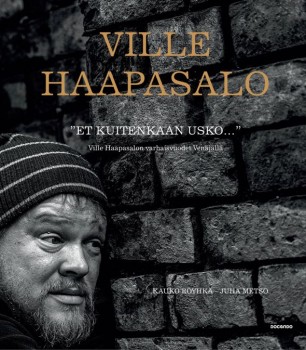
Celebrity in Russia: Ville Haapasalo on the cover of Et kuitenkaan usko… (’You won’t believe it anyway…’)
Not a lot of new titles made it to the list of the best-selling books – compiled by the Finnish Booksellers’ Association – in April, it seems. Number one on the Finnish fiction list was still Tommi Kinnunen’s first novel, Neljäntienristeys (‘The crossing of four roads’, WSOY).
In March this title reached the top after favourable reviews – in the Helsingin Sanomat daily paper in particular. The narrative spans a century beginning in the late 19th century and takes place in the Finnish countryside.
Number two – again – was another first novel about problems arising in a religious family, Taivaslaulu (‘Heaven song’, Gummerus, 2013) by Pauliina Rauhala. Number three was the latest crime/police novel by Seppo Jokinen, Mustat sydämet (‘Black hearts’, Crime Time).
On the translated fiction list, after George R.R. Martin’s A Dance with Dragons – top of the list in March too – is Donna Tartt’s The Goldfinch. Another donna (Donna Leon) was number three with her Beastly Things.
On the non-fiction list number one was a book on the Finnish actor / television journalist Ville Haapasalo’s life – and adventures during his travels in Russia, where he is a big celebrity and film star – by Haapasalo, Kauko Röyhkä and Juha Metso (Docendo). Number two was an autobiographical book by Katri Helena, a pop star who began her career in the 1960s.
The selection among the 20 best-selling books included, as usually, autobiographies and biographies, cookery, books about birds and nature. And Moomins. Books about Moomins and their creator Tove Jansson (1914–2001) certainly will rule this year – Jansson’s centenary.
Crime, no punishment
24 June 2014 | In the news
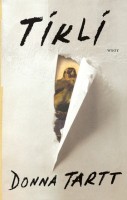 Summer is the season for crime – where buying and reading books is concerned. When spring ends and summer begins, several whodunits and thrillers appear on the list of best-selling books compiled by the Finnish Booksellers’ Association. However, on the translated fiction list Donna Tartt rules with her novel The Goldfinch (Tikli, WSOY).
Summer is the season for crime – where buying and reading books is concerned. When spring ends and summer begins, several whodunits and thrillers appear on the list of best-selling books compiled by the Finnish Booksellers’ Association. However, on the translated fiction list Donna Tartt rules with her novel The Goldfinch (Tikli, WSOY).
For the third time since March, number one on the Finnish fiction list in May was Tommi Kinnunen’s first novel, Neljäntienristeys (‘The crossing of four roads’, WSOY). In March this title reached the top after favourable reviews – in the Helsingin Sanomat daily paper in particular.
The narrative spans a century, beginning in the late 19th century, and is set mainly in Northern Finland. The Swedish publisher Norstedts was the first to buy the translation rights.
The next two on the list are crime novels: Cowboy (Otava) by Reijo Mäki and Mustat sydämet (‘Black hearts’, Crime Time) by Seppo Jokinen. The new ‘granny crime’ book by Minna Lindgren, the sequel to her Kuolema Ehtoolehdossa (‘Death at Twilight Grove’, 2013, Teos), entitled Ehtoolehdon pakolaiset (‘Twilight Grove refugees’) is number five; the resourceful 90-year-plus protagonists may not be criminals themselves, but odd things are certainly happening in the home for the elderly again. Lindgren’s first book is making its way into other languages as well.
Soiva laulukirja (‘The singing songbook’, Tammi), edited by Soili Perkiö, tops the list of books for children and young people: the push of a button delivers a piano accompaniment to any one of 50 Finnish songs. It may prove to be particularly popular with parents as entertainment for their kids on long car journeys.
Five of the other nine of the best-selling books on the translated fiction list – on which Tartt was number one – are about serial killers and other murderers.
The non-fiction list is headed by a collection of messages from the spiritual world: the pop star Katri Helena (born 1945) who debuted in 1963, has written down what she feels her dead loved ones have chosen to tell her. Taivaan tie (‘Heaven road’, Otava) deals with love, conscience, good deeds and the good life. One might wonder though why this selection of aphoristic observations is included in the non-fiction category.
On the list there are also books on baking cakes and cooking, and, as usual in summer, on nature, as people retreat to their summer homes to lie in hammocks to listen to birdsong and read about serial killers.

